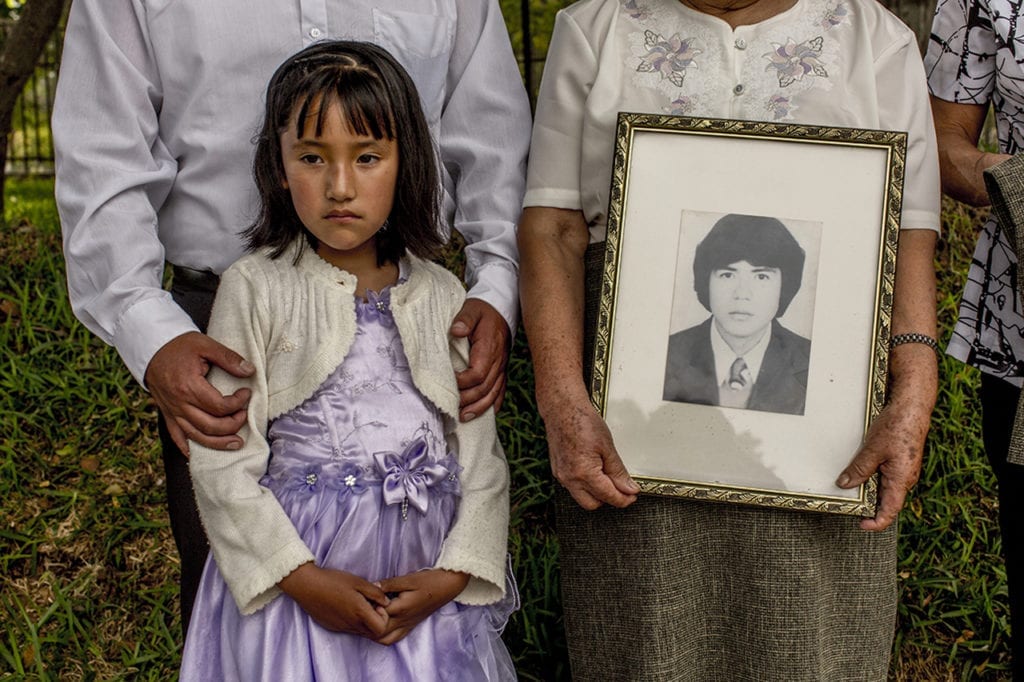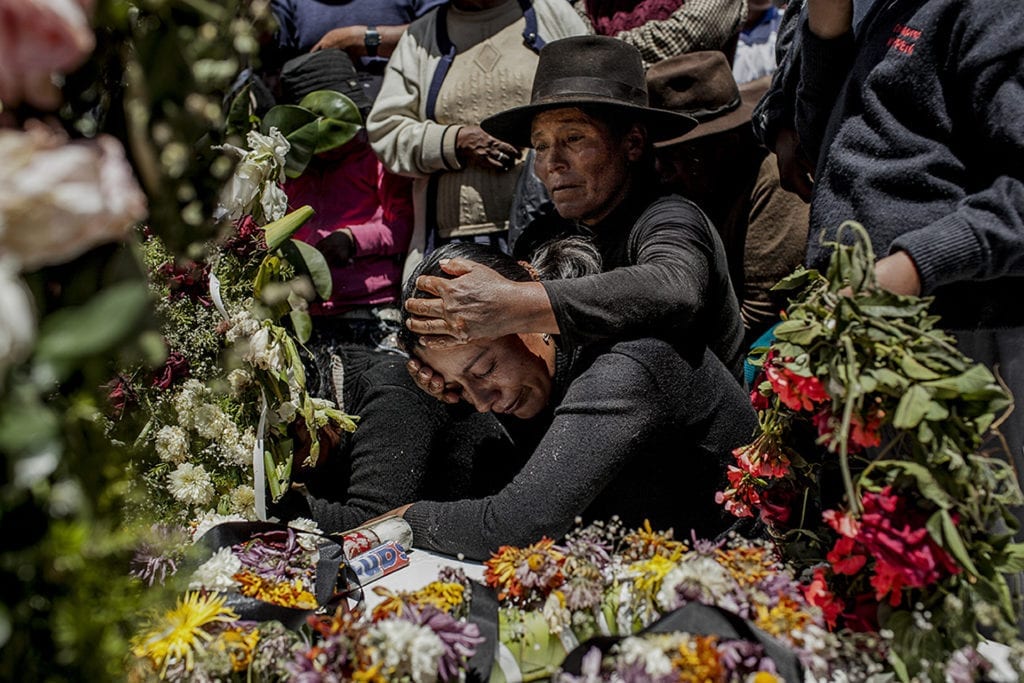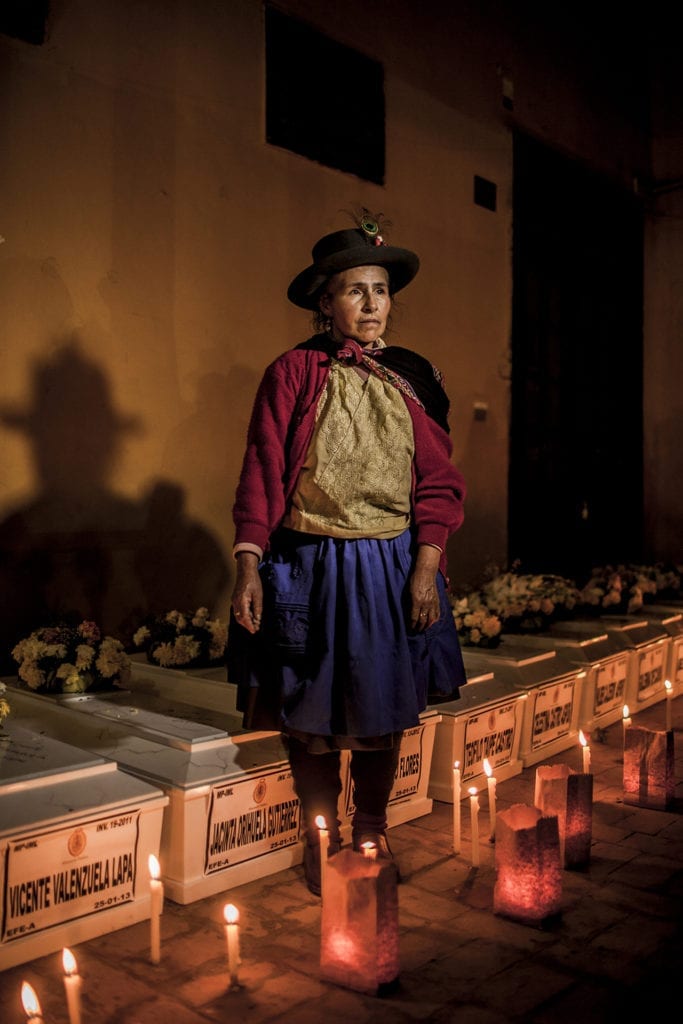“I think politics affects every decision in daily life – it’s hard to remain on the sidelines,” says Musuk Nolte. “For me, photography is a visual element to work on these very complex issues.
“With all the problems we have in our country, we have the responsibility to leave a visual document,” continues the photographer, who was born in Mexico in 1988 but is now a naturalised Peruvian.”I felt the desire to leave a document of what was going on, that it could serve as a visual and historical record. It was my way of relating to my country, but it’s important that this work also has an impact outside the community.”
A documentary photographer focused on social and political issues, he has been just nominated to join the prestigious Joop Swart Masterclass organised by the World Press Photo, and won a scholarship from the Magnum Foundation to finish his project Open Mourning. It’s a series tackling a difficult episode in Peruvian history – the conflict between the State and a terrorist group called Sendero Luminoso between the late 1980s to the 2000s, which left more than 60,000 dead and displaced many more.
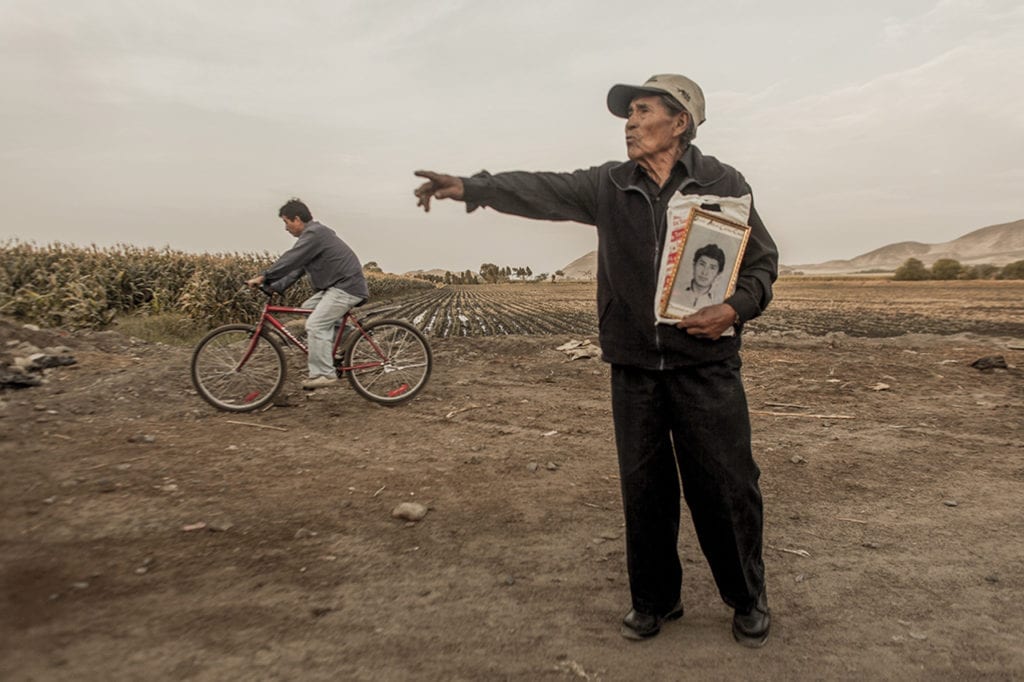
“All countries in Latin America have had experiences with ‘desaparecidos’ [“the disappeared’] during military dictatorships,” he adds, but he points out that these disappearances have a particular resonance in Peru. “In Andean culture, it is very important to have a funeral ceremony with the rest of the family, and to visit the dead every year, bringing them food and flowers.”
Musuk Nolte started work on Open Mourning when he was just 16, initially starting with a single case known as ‘Santa’. In 1992 a patrol burst into a village and nine people were kidnapped in front of their families; these relatives searched for more than 25 years to find their bodies.
He also worked on an event which happened in 1984, and which has become infamous in Peruvian history as the ‘Death Express’. “A bus was doing the usual route towards Soras, a village in the southern part of Peru, but it had 40 members of Sendero Luminoso on board,” he explains. “The bus stopped three times during the journey, killing over 100 people on the way. 27 years later, just 14 of the bodies were delivered to their relatives.”
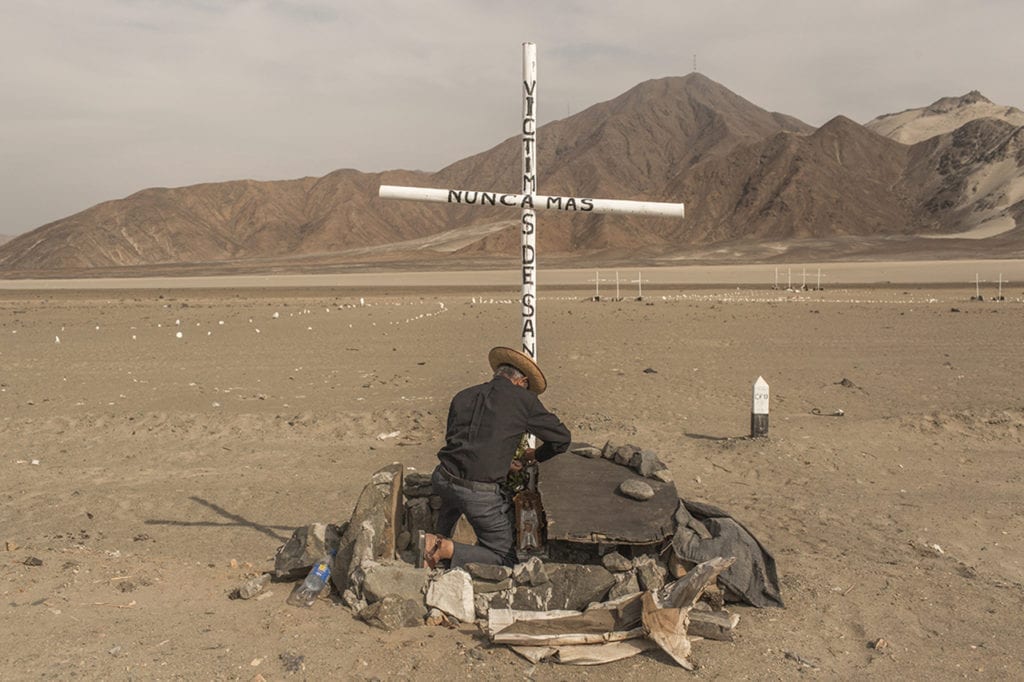
“I have seen parents who at best were waiting for news of their children for over twenty years. It’s a very deep pain – imagine that after twenty years they encountered the remains of their son. I think one of the hardest moments was seeing the buried bodies, seeing something that they had waited for so long finally happening…In most cases the parents and relatives passed out, such a deep pain emerged at that moment.”
In 2016 a law was passed allowing for searches for the bodies and for systematic, in-depth work on the terrorist cases; at the same time, the government undertook to resolve remaining open cases. Nolte is now trying to finish his project, and is preparing an exhibition for FoLa, the Latin American photo library.
Musuk Nolte is represented by Native Agency musuknolte.pe
